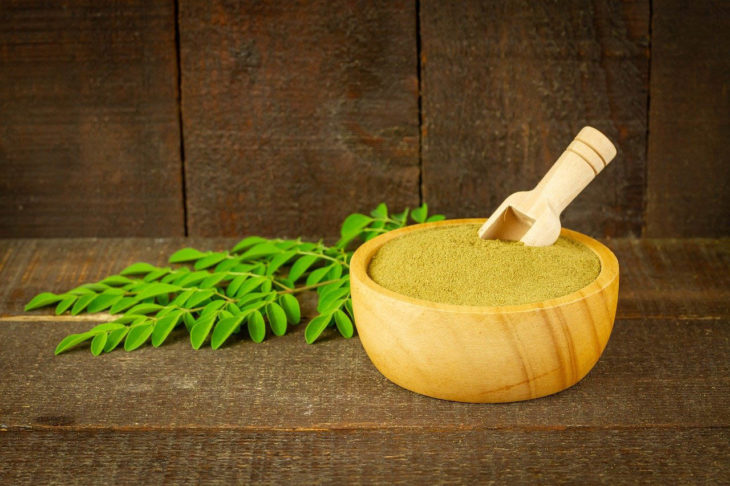
In the last few decades the traditional western approach to medicine combined with naturopathic medicine proved to be successful in treating many conditions. Naturopathic medicine uses natural remedies such as herbs, supplements, acupuncture and nutrition as a means of helping the body heal itself. But what are the benefits of herbal supplements to fertility? And is it safe?
Herbal supplements alone show no significant improvement in helping couples conceive. However, research on herbs and fertility is inconclusive as it is based on a few small studies. We’ll take a look at some of the herbal supplements claiming to support fertility and how they could possibly aid you on your fertility journey.
Proceed With Caution and Talk to Your Medical Doctor
One caveat; many people believe herbal supplements are “all natural” and therefore not harmful. Do not assume “all natural” means they are safe. Herbs have limited FDA regulation. They aren’t subjected to the same vigorous and strict regulation process as over-the-counter and prescription medications. Because they lack regulation, they could cause some very serious side effects and may interact with any medications, fertility or otherwise, you’re currently taking. Always check with your physician before taking herbal or natural supplements.
Herbs to Naturally Support Fertility
Couples trying to conceive without success should consult with their fertility specialist prior to taking any supplement. That being stated there are some herbs which show promise in supporting fertility when used in conjunction with standard treatment.
- Ashwagandha (Withania somnifera): This small woody plant with yellow flowers is native to North Africa and India. It’s been recognized for the ability to lower stress and reduce the body’s stress response. Ashwagandha helps lower cortisol (your stress hormone) levels, ease anxiety and help you sleep, all necessary to improving your odds for conception. A study involving the use of ashwagandha in men proved the herb’s usefulness in promoting sperm count, quality and motility. For the study 75 men took five grams of the herb every day over the course of three months. In that time 14% of their partners conceived. Please note, however, ashwagandha can interfere with autoimmune diseases such as lupus, rheumatoid arthritis and Hashimoto’s thyroiditis as well as type 1 diabetes. Ashwagandha may also interact with certain medications so be sure to check with your physician before including ashwagandha in your supplements.
- Red Raspberry Leaf Tea: In addition to being delicious, red raspberry leaf tea has many positive attributes and sipping a few cups a day provides an antioxidant boost to keep you healthy-always a good thing when you want to conceive. Drinking red raspberry leaf tea also reduces inflammation in your body, including your reproductive system.
- Black Cohosh: This herb is native to North America and Canada and was first used for its medicinal properties by Indigenous Native Americans. While commonly used at one time to treat muscle aches and spasms its gained recent popularity as a treatment for many of the uncomfortable symptoms of menopause as well as menstrual pain such as headache and cramping. Some small studies report black cohosh is useful in fertility treatment alongside traditional fertility medications, however there are many warnings associated with this herb so proceed with extreme caution and only under medical supervision.
- Evening Primrose Oil: For those women who struggle with their fertility due to the quality and quantity of cervical mucus, consider taking evening primrose oil (EPO). Cervical mucus helps the sperm reach the egg. EPO boosts Omega 6 fatty acids which not only supports healthy cervical mucus but aids in balancing hormones. It’s also essential for healthy sperm. Major warning; you should only take EPO prior to ovulation as it may contribute to miscarriage. Consult with your health care provider, before using this supplement.
- Vitex (Chasteberry): The herb vitex, also known as chasteberry extract, may have a two-fold effect on fertility. First it’s shown to balance the body’s hormone function and elevate progesterone which aids in the luteal phase of the menstrual cycle. After ovulation and prior to your period is the luteal phase. This is a 12-14 day span when your ovaries release progesterone which triggers the growth of your uterine lining. A healthy, well developed uterine lining is necessary for implantation of the fertilized egg.
- Maca: Maca is a popular supplement for its adaptive properties which helps the body cope in times of stress. Dealing with a diagnosis of infertility is certainly stressful. Researchers believe this supplement causes an increase in androgens and elevates testosterone in men, however evidence is inconclusive. In any case, women who suffer from PCOS, a condition associated with increased androgens, should err on the side of caution and avoid maca.
- Cinnamon: Cinnamon bark, which makes the cinnamon you sprinkle on your toast, has a positive effect on both sperm production and insulin response. In a study published by the NIH sperm count, viability and motility were all improved by daily doses of cinnamon. This comforting spice lowers insulin resistance as well, which is directly associated with PCOS. Here’s a healthy and delicious recipe that boosts your cinnamon intake.
Are There Herbs to Avoid When Trying to Conceive?
Some herbal supplements, especially if taken in large doses, have a negative impact on fertility. Herbs such as St. John’s Wort, taken to treat anxiety and depression, may disrupt hormonal balances. Echinacea and Gingko Biloba potentially damage reproductive cells and prevent sperm from fertilizing the egg. It’s best to avoid these herbs specifically when trying to conceive. Always consult with your health care provider before taking any supplements.
Before Taking Any Supplements
Find out more about herbs and other natural supplements and how they affect your fertility by contacting LA IVF. When you are trying to grow your family, you should never take any supplement without talking to your medical doctor. Contact our office today.










